Oh sleep! it is a gentle thing,
Beloved from pole to pole!
To Mary Queen the praise be given!
She sent the gentle sleep from Heaven,
That slid into my soul.
The Rime Of The Ancient Mariner by by Samuel Taylor Coleridge
 Sleep disturbance is a much complained of symptom among the depressed, from the early morning awakening of Melancholic to the long nights of the afflicted that feels like the albatross around the neck of Colridge’s cursed mariner. "If I could only sleep," is a constant refrain in the clinics and offices of psychiatrists and primary care physicians alike. And one of the earliest signs of relief in depression is some improvement in sleep patterns. Trivedi et al’s latter-day pooled analysis of Seroquel XR® in MDD mentioned in the last post is about just that – the effect of Seroquel on the sleep cycle in depressed people.
Sleep disturbance is a much complained of symptom among the depressed, from the early morning awakening of Melancholic to the long nights of the afflicted that feels like the albatross around the neck of Colridge’s cursed mariner. "If I could only sleep," is a constant refrain in the clinics and offices of psychiatrists and primary care physicians alike. And one of the earliest signs of relief in depression is some improvement in sleep patterns. Trivedi et al’s latter-day pooled analysis of Seroquel XR® in MDD mentioned in the last post is about just that – the effect of Seroquel on the sleep cycle in depressed people.
I could only access two of the three positive studies of Seroquel XR® in Major Depressive Disorder done by the Moonstone Study Group used in Trivedi et al’s analysis. Here are the published responses of the changes in MADRS scores in those two studies:
by Weisler R, Joyce M, McGill L, Lazarus A, Szamosi J, and Eriksson H
CNS Spectrums. 2009 14:299–313.
by Bortnick B, El-Khalili N, Banov M, Adson D, Datto C, Raines S, Earley W, and Eriksson H
Journal of Affective Disorders. 2011 128:83–94.
They get better fast on Seroquel XR®, but they don’t get that much better – two to three points on the MADRS Scale over placebo. Now here’s what Trivedi et al reported measuring only the sleep items of the MADRS Scale in the pooled data:
by Trivedi MH, Bandelow B, Demyttenaere K, Papakosts GI, Szamosi J, Earley W, and Eriksson H.
International Journal of Neuropsychopharmacology. 2013 14:1-12.
So, if you pulled out the sleeping pill effect of Seroquel XR®, I expect that the overall scores wouldn’t look very good, like there goes the significance. I can’t do those numbers because I don’t have the raw data [because more people need to sign the
AllTrials petition]. Suffice it to say that perhaps Seroquel XR® has no antidepressant properties at all but rather is helping people and changing scores in MDD because it’s a potent sedative. That’s what I think, but I wanted to explore that further – to see the MDRS plots for the pooled data, but they weren’t in Trivedi et al. The only thing was the MADRS Scores fractionated by sleep history:
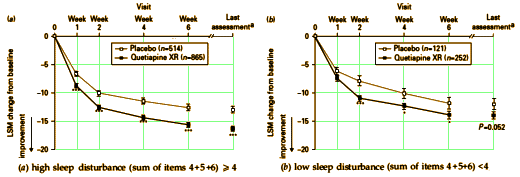
I felt pretty good about my conclusion, but I was annoyed that I couldn’t do what I wanted to do – subtract the sleep difference and see what was left in the MADRS depression score for the pooled data. Then I remembered there was another study where they pooled all four earlier studies – another Trivedi at that:
by Thase ME, Montgomery S, Papakostas GI, Bauer M, Trivedi MH, Svedsäter H, Locklear JC, Gustafsson U, Datto C, Eriksson H.
International Clinical Psychopharmacology. 2013 28[3]:113-20.
Foiled again. But it was sort of there. This was a study that proposed to look at the severity of depression and see if covaried with Seroquel XR® responses – and it didn’t. The difference in MADRS scores was the same no matter how depressed you were. But from that plot, I could see that the mean difference was right at three points with a pretty broad confidence interval. I decided that the writers at Complete Medical Communications didn’t show the MADRS plot for the pooled studies because they didn’t want some yokel like me coming along and claiming that Seroquel XR® had no antidepressant properties – that it was just a sleeping pill. But some yokels are persistent:
-
There was no dose response curve with varying doses of Seroquel XR®.
-
The severity of the baseline depression didn’t effect the response.
-
The MADRS response in people with little sleep problem was not significant.
-
The fall in MADRS scores was immediate and paralleled the sleep improvement.
-
The MADRS placebo/drug difference was small and would likely be insignificant without the sleep parameters.
I rest my case. Seroquel XR® is a sleeping pill, not an antidepressant – an effective sleeping pill that’s expensive in more ways than one and becomes a new Albatross to deal with…
 Sleep disturbance is a much complained of symptom among the depressed, from the early morning awakening of Melancholic to the long nights of the afflicted that feels like the albatross around the neck of Colridge’s cursed mariner. "If I could only sleep," is a constant refrain in the clinics and offices of psychiatrists and primary care physicians alike. And one of the earliest signs of relief in depression is some improvement in sleep patterns. Trivedi et al’s latter-day pooled analysis of Seroquel XR® in MDD mentioned in the last post is about just that – the effect of Seroquel on the sleep cycle in depressed people.
Sleep disturbance is a much complained of symptom among the depressed, from the early morning awakening of Melancholic to the long nights of the afflicted that feels like the albatross around the neck of Colridge’s cursed mariner. "If I could only sleep," is a constant refrain in the clinics and offices of psychiatrists and primary care physicians alike. And one of the earliest signs of relief in depression is some improvement in sleep patterns. Trivedi et al’s latter-day pooled analysis of Seroquel XR® in MDD mentioned in the last post is about just that – the effect of Seroquel on the sleep cycle in depressed people. 
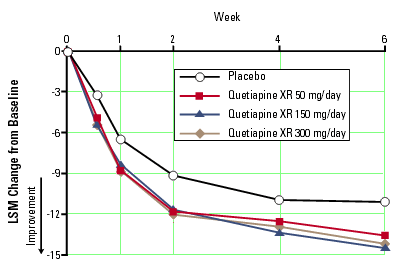
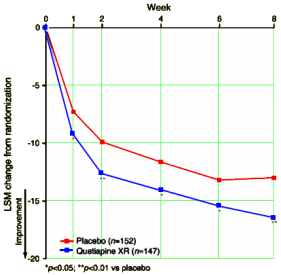
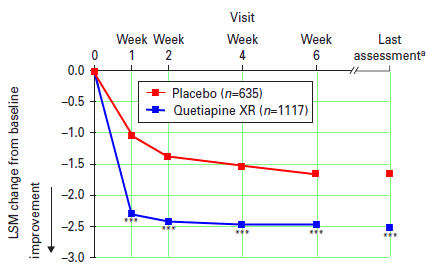
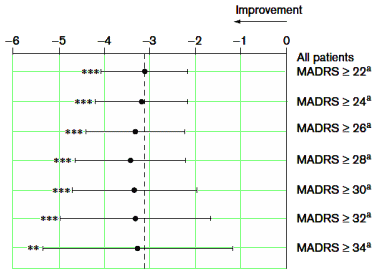
Dear Mickey,
Any chance you might you take a look through the CATIE study results? If you haven’t already;
I think that was the most frightening piece of material I ever went through.
It was a federally funded study to determine the cost effectiveness of the old anti-psychotics compared to the newest.
I would love to understand what exactly the result of the study was. Roughly 60 percent of the patients were injured, and the “psychotic relapse rate” increased by a horrifying 50%. There was no difference between the old and new drugs in terms of side effects/efficiency. The drop out rate was something like over 70%. There were roughly 1500 participants.
http://www.ncbi.nlm.nih.gov/pubmed/19594194
Here is the official homepage:
http://www.nimh.nih.gov/health/trials/practical/catie/phase1results.shtml
CUtLASS was another federally funded study.
Neither affected sales, marketing, or use apparently.. 🙁
Personally, I don’t believe Seroquel is anything other then a powerful sedative that causes psychosis. Just like all it’s brothers.
“”Sleep disturbance is a much complained of symptom among the depressed, from the early morning awakening of Melancholic to the long nights of the afflicted that feels like the albatross around the neck of Colridge’s cursed mariner. “If I could only sleep,” is a constant refrain in the clinics and offices of psychiatrists and primary care physicians alike.””
And as one who wasted 15 years of my life on a cocktail of antidepressants with undiagnosed apnea, with all due respect, psychiatrists and primary care providers need to understand that untreated sleeping disorders can lead to depression and other psychiatric disorders. In my opinion, before any patient gets a crumb of a psych med, they should be routinely screened for potential sleeping disorders if insomnia is a complaint so they can be referred to a sleep specialist if necessary. To not do this is reprehensible in my opinion.
Speck,
I was gone yesterday. I had set a filter in the comments but it backfired and held your comments for unknown reasons. Sorry. I “unfiltered.” Hopefully it’s fixed…
I have looked at CATIE, starting here.
I think CATIE did change some minds. It changed mine. The big thing was that the Atypicals were no better than the old neuroleptics. But to me, the big thing was that the patients discontinued the meds at such a high rate [dropping out was actually the outcome measure]. Another thing was that Seroquel was rejected by this population – yet it was the “mega-seller.”
It didn’t impact sales because sales weren’t to this population. I think sales were driven by “off label” marketing…
From the outside I have to ask: Is sedation a desirable end point in certain patient populations? As we learn more and more about the abuse of both the elderly and the young it would be easier to claim depression or other psychotic malady and then medicate with an “anti-depressant” while the true desire is really to sedate a patient.
Sedating a large number of patients in any setting would draw outrage from many quarters, while “treating” underserved patients will bring applause.
Steve Lucas
Steve,
Excellent point. Particularly with the “Bipolar Child” epidemic where the “treating”/”sedating” issue is on the front burner…
AA,
Point well made and taken. I have to fault multiple sources. One of the unintended consequences [I think unintended] of Dr. Spitzer’s DSM-III solution was that classifying by symptoms lead to treating by symptoms. Managed Care didn’t help with that by essentially relegating psychiatrists to the medication visit vs the diagnostic role. This is a huge problem resulting in multiple negative consequences. If the APA were functional, this is what they would be fighting for – to insist on diagnostic work-up space prior to treatment. Everybody is frustrated with this – doctors and patients alike.
Yeah, looking at how Seroquel works in the brain and from my own experience, much of what it does at least in the lower doses is very heavy sedation. Just 25 mg or 2*25 mg made me sleep 12-14 hours and still feel tired during the day. At the lower doses, much of the heavy sedation is maybe due to its strong effect on histamine H1 receptors. If you want just that, maybe you could take maybe just old antihistamine such as Benadryl. On higher doses, Seroquel works with adrenergic, serotonin, dopamine, that is typical atypical receptors and that may well make the depression much worse or cause depression like symptoms (“negative symtoms”). It seems to me that sometimes doctors try with a low dose of Seroquel and when the patient seems more calm or sleeps more because of the antihistamine effect, later when the drugs are not working enough, they say to themselves that the patient seems a Seroquel responder, let’s increase the dose. I’ve often seen people take “neuroleptic” doses of maybe 600-800 mg of Seroquel for what originally was maybe a sleeping problem or anxiety.
They used to call the older ones” tranquilizers“.
They’re still tranquilizers – whether older or newer “atypical”
And tranquilizers sedate.
They sedate big-time.
Non-medical folks call this powerful sedation “turning someone into a zombie”
We recognize it when we see it, and for the life of us, we cannot understand why doctors are so often blind to the obvious effects (aka “side effects”).
Duane
Dr. Breggin calls the long-term use of these powerful agents, a “chemical lobotomies.”
Those of us who tell others about what we’ve read from Breggin, and a few other reformers like him…. what we’ve seen, what we’ve heard… We’re dismissed as “zealots,” “scientologists,” or worse.
Presenting the facts, telling the truth comes at a high price… NAMI went after Breggin’s license for appearing on the Oprah Winfrey show several years ago. – http://www.breggin.com
Duane
Dear 1BOM,
Ah, i though the comments simply didn’t go though.
Thanks for the link, I’m looking through it it now.
If you think you had sleep problems before you took Seroquel, they will look very mild compared to the sleep problems you get as a withdrawal symptom.